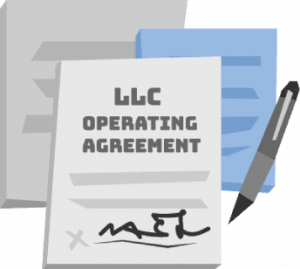How to Create an LLC in Arizona
To form an LLC in Arizona, name your business, pick an Arizona statutory agent, submit the required paperwork to Arizona’s Corporation Commission, and check if your statutory agent’s county requires a publication requirement. To actually maintain your LLC’s limited liability and keep your private information out of the public eye, you’ll need to do a whole lot more.
This guide walks you through the steps of getting an LLC in Arizona.

1. Name Your LLC
In Arizona, every LLC needs a name that follows Arizona’s naming statutes.
- It must contain the words limited liability company, limited company, or an abbreviation such as LLC.
- It must be unique among registered business names in Arizona.
- It must not contain the following words: association, corporation, incorporated, bank, deposit, credit union, trust, or trust company.
Before you settle on a name, you’ll want to perform a business name search in Arizona. That way you’ll find out if some other Arizona business is already using the name you want.
Note: Decided on the perfect name but aren’t ready form your LLC? File an Application to Reserve Limited Liability Company Name ($10 to file by mail/in person or $45 online) with the Arizona Corporation Commission (ACC) to hold the name for 120 days.
LLCs sometimes use a DBA in place of their legal business name. Arizona calls DBAs trade names, and you can register one for just $10 by filing a Trade Name Registration Application with Arizona’s Secretary of State.
Our Arizona DBA guide explains why you might want a DBA.
Create Your Arizona LLC!


2. Claim Your Domain Name
Your domain name opens up a world of options. From launching a website, building social media profiles, setting up email communications, and printing business cards, there’s a whole lot of new-business stuff you can’t do until you choose a domain name.
When you choose your business domain, consider:
-
Does your domain work well with your business name?
-
Is your domain easy to remember and spell?
-
Is your domain available wherever else you want it, like social platforms, trademarks, or business name registries?
Once you have a domain you’re happy with, it’s time to claim it. When you order your domain through Northwest, we’ll also set you up with a website, custom built by our business website experts, hosted and secured through us. You can test drive that website completely free for 90 days.

3. Designate a Statutory Agent
Every limited liability company in Arizona is legally required to appoint a statutory agent (aka registered agent). You’ll need to include your statutory agent’s name and address on your formation paperwork. Arizona’s statutory agent requirements are listed in AZ Revised Statute § 29-3115.
Your Arizona statutory agent must:
- Maintain a physical street address (not a P.O. Box) in Arizona.
- Be available at this address during normal business hours (9 AM to 5 PM).
- Accept service of process and other important legal mail on behalf of your business.
Learn why business pros hire a registered agent service.
You sure can! Question is, are you comfortable with your name and address going on Arizona’s public record? When you hire Northwest, we’ll list our name and business address on your Arizona Articles of Organization. This will keep your personal information off the record, and away from prying eyes.
Yes. To change your statutory agent in Arizona, file a Statement of Change form with the ACC and pay the $5 fee.

4. Submit LLC Articles of Organization
You need to submit the Arizona Articles of Organization to the ACC in order to officially register your LLC with the state. You can submit the Articles by mail, fax, online, or in person.
All of the information you list on this form will become part of Arizona’s public record.
You’ll need the following information to complete your Articles:
- Entity type: Are you forming a standard LLC or a Professional Limited Liability Company (PLLC)? PLLCs provide state-licensed services such as law or medicine. Check one.
- Entity name: Must include limited liability company, limited company, or an abbreviation like LLC.
- Professional services: If you’re forming a PLLC, list the professional services it will offer.
- Statutory agent name: List the name of your statutory agent.
- Statutory agent physical address: Must be a street address, not a P.O. Box.
- Statutory agent mailing address: A P.O. Box is fine here.
- Principal address: Where you will be sent service of process and other legal notices. Tip: Hire a statutory agent service and use their physical address as your principal address to protect your privacy.
- Management structure: Is your LLC going to be member-managed or manager-managed?
- Organizer: The person who fills out your Articles of Organization signs here.
Hire Northwest! We’ll list our name and address on your LLC formation paperwork. This means that any spammers or hackers will be led back to us, and not you.
Find out how Northwest can help you live privately with an LLC.
If your business is already registered in another state and you want to do business in Arizona, you may be looking to register a foreign LLC in Arizona instead. Here, foreign LLCs are LLCs registered and operating in a state other than Arizona.
Need help registering your foreign LLC in Arizona? We can help.
It costs $50 to file standard Arizona Articles of Organization. Pay $85 to expedite the filing process.
Regular LLC filings in Arizona take about two weeks to process. If filing by mail you’ll want to include a few extra days for mailing time. If you paid the extra $35 for expedited filing, LLC processing will only take a day.
You can submit your Articles by mail, fax, online, or in person. If filing online, you’ll need to create a free eCorp account. If you are filing by fax, you must have a Money-on-Deposit (MOD) account in order to pay for your filing. You can use your eCorp account to deposit money into your MOD account.
Mail or in person:
Arizona Corporation Commission – Examination Section
1300 W. Washington St.
Phoenix, Arizona 85007
Fax:
Regular: (602) 542-4100
Expedited filing: (602) 542-0900
Online:
Arizona Corporation Commission
You’re In Business. What's Next?

Publish Notice of Your LLC
The ACC will send you a Notice of Publication form after they approve your Articles of Organization. You’ll need to complete and send this form to one local newspaper in the county where your LLC is located. The notice needs to be published in three consecutive issues of the paper. Why? Because Arizona law requires new LLCs to publish a notice in a local newspaper within 60 days of formation.
Note: Publication fees range from around $60 to $300, depending on the newspaper.
Yes! If your statutory agent (also called a registered agent) is located in Maricopa or Pima County, the ACC will publish notice of your LLC for you, and you don’t have to do a thing. Guess what? Our office is in Pima County, so if you hire Northwest, you can skip this step entirely.

Write an LLC Operating Agreement
Your Arizona company’s operating agreement should contain the details of all the legal and financial rights of the members of your LLC. Operating agreements often include how profits will be distributed, how the LLC can add or remove members, who contributes capital for the business, and even what to do if the business closes up shop. Sound daunting? Use our free lawyer-approved AZ LLC operating agreement template.
Arizona does not require LLCs to have operating agreements, but you’ll still want to draw one up for two main reasons:
- If your LLC gets sued, a strong operating agreement will show the court that your LLC is a distinct legal entity with limited liability protection.
- Most banks require an LLC to produce a member-signed operating agreement in order to open a business bank account.
There is no requirement for a single member LLC to have an operating agreement in Arizona, but you’ll most likely need one in order to open a business bank account.

Set Up Your Office
No matter what business you’re in, you need some way to organize your mail and correspondence. This could look like a brick and mortar office space that you commute to every day. Or it could mean a virtual office that goes with you no matter where you work from.
When you use an Arizona Virtual Office, you keep your business communication professional. Plus, you protect your privacy by separating your personal phone number, email, and address from your business.
Our Arizona Virtual Office service includes a phone line with a local area code, mail forwarding, a unique address at our Phoenix office, and access to our expert Corporate Guides® for just $29 per month.
Not sure you need the whole office? Try out just Arizona Mail Forwarding, which lets you choose between same-day digital scans or weekly physical mail forwarding to keep your personal address private.

Get an EIN, Bank Account & Funding
While you’re almost home, there’s more work to be done to flesh-out your AZ limited liability company. You’ll need to get an Employer Identification Number (EIN), open a business bank account, and fund your LLC. We’ll show you how.
It’s free to apply for an EIN directly from the IRS. You can file online (the fastest way), by mail, phone, or fax. Or keep it simple and hire Northwest to get your EIN for you.
Here’s what you’ll need in order to open a business bank account:
- a copy of your Arizona Articles of Organization
- LLC operating agreement
- EIN
Note: If your LLC has more than one member you’ll need an LLC Resolution to Open a Bank Account.
Your Arizona business is going to need some start-up cash. Members fund the LLC with initial capital contributions. The amount each member contributes will reflect their ownership stake in the LLC, which can be reflected on a membership certificate and recorded in the operating agreement.

File Taxes
While LLCs in Arizona don’t have to worry about filing annual reports, they will need to register the business for a state-wide tax license.
Most LLCs in Arizona need to register for a Z Transaction Privilege Tax (TPT) license by filing the Arizona JT-1 Application with the Department of Revenue.
The license costs $12 per business location. Note that you may need a tax license from the cities your LLC operates out of, too. Arizona Transaction Privilege Tax rates vary by location and business type.
Unsure if your business activity requires a TPT license? Check out this list to find out.
In Arizona, LLCs do not have to file annual reports.
Unless your AZ LLC elects to be taxed as an S-Corp or C-Corp, it will be taxed as a pass-through entity. This means the LLC itself doesn’t file income taxes. Instead, income passes through to members, who then report the income on their personal tax returns. It’s also important to note that in the eyes of the IRS, each member of the LLC is self-employed, and must pay self-employment taxes (15.3%) on ALL of their business income.
Learn more about How to File LLC Taxes.
*This is informational commentary, not advice. This information is intended strictly for informational purposes and does not constitute legal advice or a substitute for legal counsel. This information is not intended to create, nor does your receipt, viewing, or use of it constitute, an attorney-client relationship. More information is available in our Terms of Service.
Ready to Start an LLC in Arizona?








